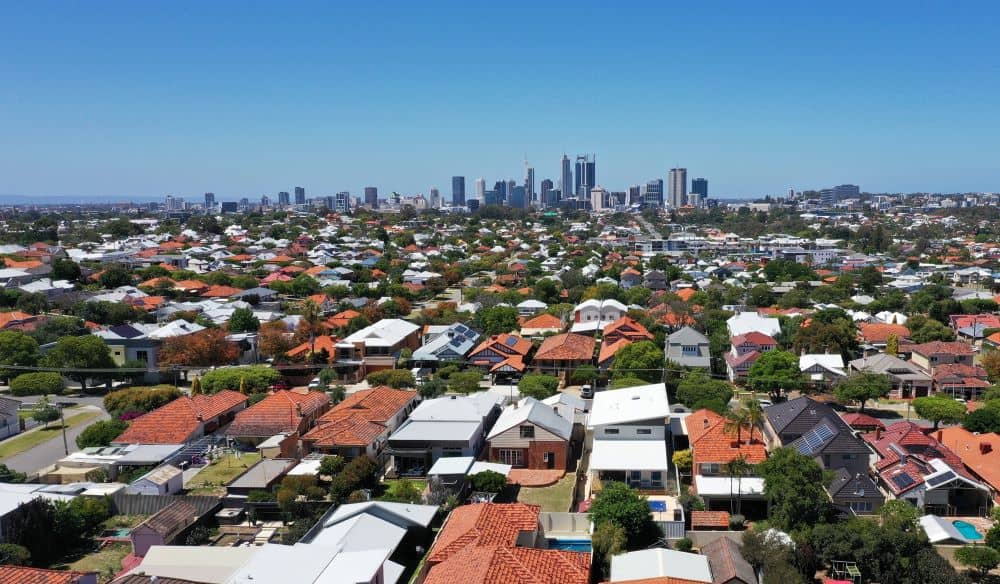Commercial vs Residential Investment Properties

Recently, we have seen a booming seller’s market in Australia. Home prices have reached highs property owners would never dream possible. This, of course, has sparked ongoing concerns about a housing bubble on the verge of bursting.
During the same time, commercial property has shown itself as stable and nowhere near the levels that would bring a bubble. The circumstances usher in chatter about which type of property investment is best.
Your situation will play a significant role in choosing the best investment. The present situation leaves potential investors plenty to consider before making any moves. However, having information about each type of investment property can help you choose the best direction for your journey into real estate investing.
Which Property is a Better Choice for Real Estate Investing?
The question “Which property is a better investment, commercial or residential?” comes up frequently.
A critical point that you must know is that residential and commercial property investments are not opposing teams assigned to be good or bad. They are different investment types, and you should view them separately.
Even so, there are several similarities between commercial and residential property investing:
- Potentially high returns
- Security of investing in bricks and mortar
- Viewed as a long-term investment
- Dependent on renters – This includes finding, retaining, and negotiating with renters. Many property owners say that dealing with tenants is the most stressful part of owning an investment property
Is There a Market for Residential Rentals?
There is a market for residential renting in Australia. Census data shows a dip in homeownership rates, while residential renting continues to rise across the nation. The increase is most visible when looking at younger adults under age 35. Of this group, nearly 55 per cent are renters as compared to age 35-54, and those over 55 whose rental percentages were 25 per cent and 12 per cent, respectively.
Is There a Market for Commercial Properties?
The commercial property sector will always have divisions based on industries. Unlike the residential sector, which can depend on the fact that everyone needs a place to live, commercial properties are subject to various economic factors. Covid-19 has changed the way people work, shop, and socialize.
Not all of the changes point to an increase in commercial property vacancies. As with most details surrounding commercial property, ups and downs come from several sources. This is why due diligence and professional advice are strongly encouraged to those entering the commercial property investment world.
The Difference
Residential and commercial property investments have several similarities.
However, understanding the differences between the types is vital when you are choosing an investment path:
Types of Property
- Residential Property includes single-family homes, duplexes, townhomes, flats, apartment complexes, and villas
- Commercial Property includes office buildings, medical facilities, car parks, retail shops, industrial facilities, hotels, and storage facilities
Tenants
- Residential Property tenants are usually individuals or families
- Commercial Property tenants range from small businesses to large-scale corporations, to mom-and-pop eateries, or government entities
Length of Lease
- Residential Property leases are typically a year-long, although some are renewable every six-months
- Commercial Property leases are long term usually five years, but it can be greater depending on the lease terms
Rental Reviews
- Residential Property rental reviews take place at the lease renewal, and current market conditions drive any price changes
- Commercial Property rental reviews are governed by the locked-in review terms, which are typically annually. Any rent increases are outlined in the contract, attached to the Consumer Price Index, or linked to fixed rates
Care of Property
- Rental Property care depends on the good conscience of the tenant. Because many tenants do not see renting as a long-term commitment, they may be lax in maintenance and upkeep. Other tenants may overtly cause damage to the property
- Commercial Property tenants see themselves in the location for an extended period. This view means most tenants will maintain a high standard of care and cleanliness
Legal Protection
- Residential Property the Residential Tenancy Act is in place across Australia. It is worth noting that tenants usually are favoured by this law
- Commercial Property agreements between tenants and property owners are viewed as business contracts, and any disputes are negotiated as such
Down Payment for Property Purchase
- Residential Property investors can borrow up to 90 per cent of the money needed for the property they plan to buy
- Commercial Property investors must come up with between 50 and 70 per cent of the money for the property
Property Costs
- Residential Property tenants must maintain the property in good condition, but the property costs such as taxes, insurance fees, water rates, and other outgoings are the property owner’s responsibility
- Commercial Property owners do not shoulder the costs for these outgoings, depending on the lease details. Tenants must pay council rates, strata levels, land taxes, property management fees, and other outgoings as agreed upon in the lease
Risks of Property Investing
Top Risks in Residential Property Investing
- Lack of liquidity can pose problems for some investors
- The potential for a vacancy is not presently a significant fear. However, changes in markets can reverse that trend
- Damage to the property can be a concern depending on your tenants. A can help reduce the likelihood of severe damage to your property
Top Risks in Commercial Property Investing
- Capital growth is significantly impacted by business confidence
- The potential for large-scale, expensive repairs
- A property’s value depends on the strength of its lease
- There is a potential for extended vacancy periods between tenants
- Must meet all of the gaps in outgoings if the property has no tenant
Frequently Asked Questions
- Do Residential and Commercial Properties Provide the Same Capital Growth?
Both types of investment property can provide a fair amount of capital growth. Commercial properties experience more variables like the length of the lease, the overall economic outlook, and other economic trends that can have significant impacts on commercial property. Residential properties tend to follow city or suburb-wide trends. If you’re looking for a residential property and are looking for the best current locations to build for capital growth, Perth currently offers good value compared to other capital cities. For information relating to the best suburbs in Perth to invest in, First Home Buyers Club has a wealth of up-t0-date information.
- Are There Differences Between a Residential and a Commercial Lease?
The residential lease agreement usually follows a standard format, with occasional clauses about pets or the use of public areas. Commercial leases leave room for nearly every point to be negotiated. For this reason, having your solicitor review your lease agreement before you sign is vital.
- Which Type of Property Gives a Higher Cash Flow and Yield?
Commercial properties offer a higher return rate when compared to residential properties. Typically, a residential property may have a yield of between 3 and 5 per cent. On the other hand, a commercial property could provide a gain of 8 to 12 per cent depending on the area.
- Will I Need a Larger Deposit to Invest in a Commercial Property?
Typically, when you invest in a residential property, you can borrow up to 90 per cent of the purchase price. However, commercial properties require a larger down payment, usually somewhere between 50 and 70 per cent.
- Which Property Type is Easier to Maintain?
Residential property maintenance can vary depending on the tenant. Maintaining either type of property can be difficult. However, commercial tenants use their space to keep their business running. It is in their best interest to maintain the property to the best of their ability. The biggest maintenance risk with commercial property is large repairs such as fixing a roof or replacing plumbing or wiring.
As a potential investor, you may be struggling to determine which type of property investment is best for you. Both types of property investment have pros and cons that you should understand. Our experts at Quantum Capital Australia have the knowledge and experience to help you make wise and profitable investment decisions.
Commercial properties offer a higher return rate when compared to residential properties. Typically, a residential property may have a yield of between 3 and 5 per cent. On the other hand, a commercial property could provide a gain of 8 to 12 per cent depending on the area.
- Are Commercial Properties Better to Invest in Than Stocks?
This entirely depends on the specific property and the specific stock. If you’d like to compare a specific property’s value proposition to a stock, we recommend reviewing the resources at Themarketbull.com.au.
** Please Note** The material in this article is for informational use only. It is not intended to replace an individual consultation with a financial expert. Likewise, this material is not legally binding professional investment advice

